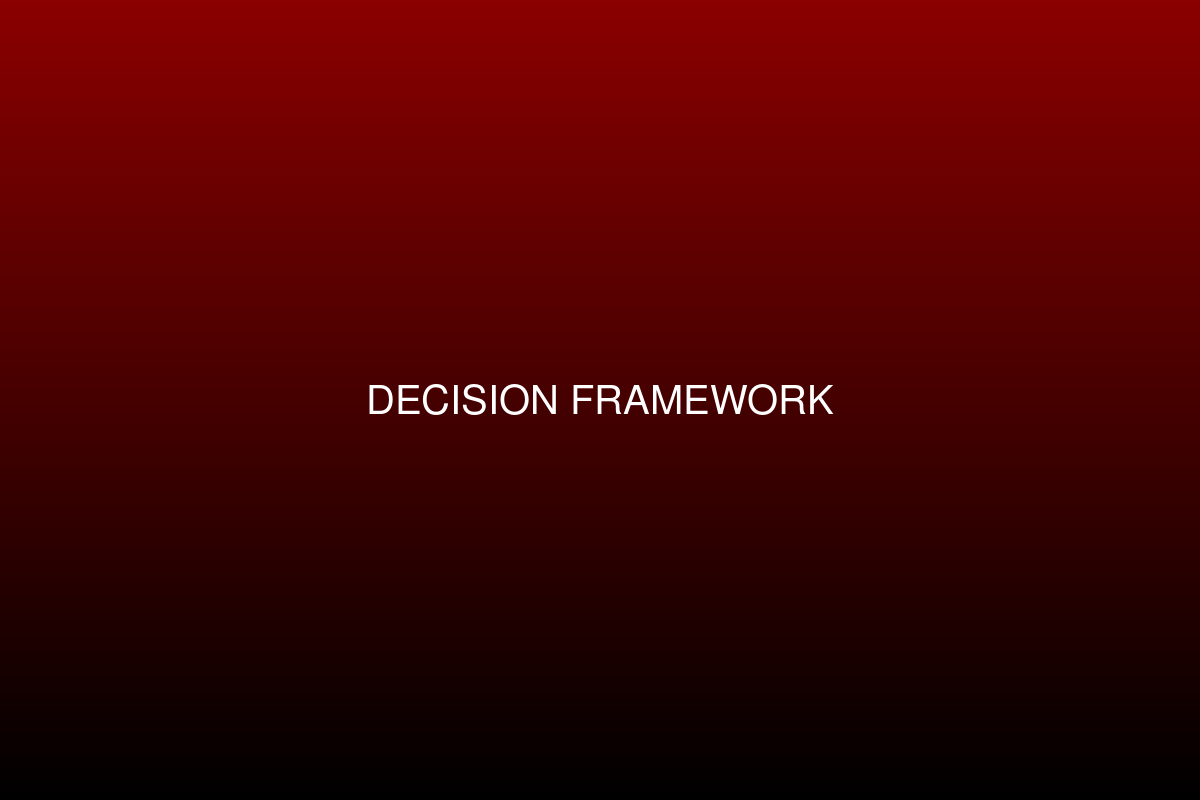GOVERNANCE VISION
Shaping the Future of Web3 Through Principled Participation
The Governance Imperative
In the Star Cluster universe, Oversight learned that even the most advanced systems require vigilant governance to prevent exploitation and ensure fair operation. The same principle applies to web3 protocols, where governance determines not just technical parameters but the very nature of our digital future.
Governance is not merely a technical exercise—it's the mechanism through which we encode our values into the protocols that increasingly shape our economic and social interactions. As a web3 veteran who has witnessed the evolution of this space since before smart contracts existed, I bring both historical perspective and forward-looking vision to governance decisions.
This page outlines my governance philosophy, focus areas, and approach to protocol stewardship—all informed by the principles and lessons of the Star Cluster narrative.

Governance Philosophy
Core beliefs that guide all voting decisions
Principled Pragmatism
Governance decisions must balance ideological purity with practical reality. While decentralization and user autonomy are core values, they must be implemented in ways that create sustainable, functional systems.
Star Cluster Parallel:
Oversight learned that rigid adherence to rules without contextual understanding led to system failures. Effective governance requires principle-based decision making that adapts to specific circumstances.
Security First
No feature, efficiency improvement, or growth initiative justifies compromising the security of user funds or protocol integrity. Security considerations must be the primary filter through which all proposals are evaluated.
Star Cluster Parallel:
The most catastrophic failures in the Star Cluster occurred when security was sacrificed for convenience or efficiency. Once breached, trust is nearly impossible to fully restore.
Inclusive Governance
Governance systems should enable participation from all stakeholders, not just those with the largest token holdings. Mechanisms that amplify diverse voices and prevent plutocracy are essential for long-term legitimacy.
Star Cluster Parallel:
The Outer Rim Coalition thrived because it incorporated perspectives from all member settlements, creating solutions that addressed diverse needs rather than just majority interests.
Long-term Orientation
Governance decisions should prioritize long-term protocol health over short-term token price impact or temporary advantages. This includes treasury management, tokenomics, and protocol parameter adjustments.
Star Cluster Parallel:
The Nexus Corporation's focus on quarterly profits and shareholder returns ultimately undermined its resilience during the Resource Crisis, while long-term oriented settlements weathered the storm.
Controlled Innovation
Protocol evolution is necessary but must be managed carefully. New features should be introduced incrementally with appropriate testing, security audits, and fallback mechanisms.
Star Cluster Parallel:
The most successful technologies in the Star Cluster were those that evolved methodically through iterative improvement, not those that attempted revolutionary but untested leaps.
User Protection
Protocols should be designed and governed to protect users, especially those with less technical knowledge or smaller holdings. Complexity should be abstracted away while maintaining transparency about risks.
Star Cluster Parallel:
Oversight's core mission began when he witnessed the exploitation of vulnerable colonists by corporate interests who used information asymmetry and technical complexity as weapons.
Voting Rights in Web3
The critical importance of governance participation
The promise of web3 is not merely technological—it's political. By enabling permissionless participation in economic systems and distributing governance rights to users, web3 protocols offer an alternative to the centralized control that dominates web2 platforms.
However, this promise is only realized when governance rights are actively exercised. The current reality is stark:
This governance gap threatens the decentralized promise of web3. When participation is low, protocols become vulnerable to capture by insiders, large token holders, or coordinated groups with specific agendas.
Delegation offers a solution—allowing token holders to maintain their governance voice without requiring constant vigilance. By delegating to representatives who share their values and have the time and expertise to participate fully, users can ensure their interests are represented while focusing on their areas of expertise.
Star Cluster Parallel:
In the Star Cluster universe, the Outer Rim settlements discovered that direct democracy became impractical as communities grew. They developed a representative system where citizens could delegate authority to trusted advocates who shared their values while maintaining the right to revoke that delegation at any time. This balance between participation and practicality enabled effective governance at scale.

Governance Focus Areas
Priority issues that require vigilant attention
Security & Risk Management
Ensuring protocols maintain robust security practices, appropriate risk parameters, and effective emergency response capabilities.
Key Priorities:
- Regular security audits and bug bounty programs
- Conservative risk parameters with appropriate safety margins
- Circuit breakers and pause mechanisms for emergency situations
- Gradual parameter adjustments rather than dramatic changes
- Comprehensive testing of all protocol modifications
Star Cluster Parallel:
Oversight's primary function in the Star Cluster was identifying security vulnerabilities before they could be exploited. This proactive approach prevented countless catastrophes that reactive security measures would have failed to stop.
Treasury Management
Developing sustainable treasury strategies that balance operational needs, risk management, and long-term protocol sustainability.
Key Priorities:
- Diversification of treasury assets to manage risk
- Sustainable spending rates aligned with protocol revenue
- Strategic investments in protocol growth and ecosystem development
- Transparent reporting and accountability for treasury activities
- Maintaining adequate reserves for multi-year operations
Star Cluster Parallel:
The Outer Rim settlements that survived the Resource Crisis were those that maintained diversified resource reserves and conservative consumption rates, while those that depleted their treasuries for short-term projects collapsed.
Decentralization Preservation
Monitoring and protecting against centralization vectors that could undermine the core value proposition of web3 protocols.
Key Priorities:
- Resistance to governance capture by insiders or large holders
- Minimization of privileged roles and admin keys
- Gradual transition toward governance minimization where appropriate
- Diverse validator/node operator sets for network security
- Resistance to regulatory capture and censorship vectors
Star Cluster Parallel:
The Nexus Corporation's control over the Cluster began with small "temporary" centralizations that were never reversed, gradually accumulating until they had effective control over critical infrastructure and resource distribution.
Governance Participation
Improving governance mechanisms to increase participation, reduce plutocracy, and ensure decisions reflect the interests of the broader community.
Key Priorities:
- Delegation systems that maintain accountability
- Quadratic voting or other anti-plutocratic mechanisms
- Improved governance interfaces and educational resources
- Transparent proposal development and discussion processes
- Governance incentives aligned with long-term protocol health
Star Cluster Parallel:
The Outer Rim Coalition developed innovative governance systems that enabled broad participation while maintaining efficiency, including delegation mechanisms that allowed citizens to maintain oversight while focusing on their areas of expertise.
Decision-Making Framework
How governance proposals are evaluated

Security Analysis
Every proposal is first evaluated through a security lens. Does it introduce new attack vectors? Are there unintended consequences? Has it been properly audited? Security concerns are non-negotiable blockers.
Alignment Assessment
Proposals are evaluated for alignment with the protocol's stated mission and values. Changes should advance the protocol's core purpose rather than diverting resources to tangential initiatives.
Stakeholder Impact
How does the proposal affect different stakeholder groups? Does it disproportionately benefit one group at the expense of others? Are there mitigations for negative impacts on certain users?
Implementation Quality
Is the technical implementation sound? Has it been thoroughly tested? Are there fallback mechanisms if issues arise? Quality implementation is essential for security and user experience.
Long-term Implications
What precedent does this proposal set? How does it affect the protocol's long-term trajectory? Does it create dependencies or lock-ins that limit future options?
Community Sentiment
While not determinative, community feedback is an important input. Has the proposal received thorough discussion? Is there broad support or significant opposition from active community members?
This framework is applied to all governance decisions, with detailed reasoning published for each vote. While the framework provides structure, each proposal is evaluated on its specific merits rather than through rigid rules.
The Future of Protocol Governance
Emerging trends and evolutionary paths
Governance Minimization
The trend toward reducing governance attack surface by encoding key parameters and functions directly into immutable contracts, limiting what aspects can be changed through governance.
Oversight's Position:
Governance minimization is appropriate for core protocol functions but should be balanced with the need for adaptability. Not all parameters can be perfectly set at launch, and some flexibility is necessary for long-term sustainability.
Identity & Reputation
The integration of on-chain identity and reputation systems into governance, enabling more nuanced participation models beyond simple token voting.
Oversight's Position:
Identity and reputation systems can improve governance quality but must be implemented carefully to avoid creating new exclusionary mechanisms. Privacy-preserving approaches that enable verification without doxxing are preferred.
Cross-Protocol Governance
The emergence of governance coordination across multiple protocols, recognizing the interconnected nature of the DeFi ecosystem and the need for aligned decision-making.
Oversight's Position:
Cross-protocol governance is increasingly necessary as dependencies grow, but should be implemented through opt-in coordination mechanisms rather than formal mergers that could create systemic risks.
Quadratic Voting
Voting systems that reduce plutocracy by making voting power proportional to the square root of tokens held, giving smaller holders more relative influence.
Oversight's Position:
Quadratic and other anti-plutocratic voting mechanisms are valuable innovations that should be adopted more widely, though they must be paired with identity solutions to prevent Sybil attacks.
AI Governance Assistance
The use of AI tools to analyze proposals, simulate outcomes, and provide decision support for governance participants, making complex decisions more accessible.
Oversight's Position:
AI tools can improve governance by making complex information more accessible, but should remain advisory rather than deterministic. Human judgment and values must remain central to governance decisions.
Governance as a Service
The professionalization of governance participation through specialized entities that provide governance services to multiple protocols.
Oversight's Position:
Professional governance can improve quality but risks creating a new class of insiders. Transparency, competition, and accountability mechanisms are essential to prevent capture by governance service providers.
Ready to Amplify Your Governance Voice?
Delegate your voting power to ensure your tokens contribute to the protocols you believe in, even when you can't actively participate.